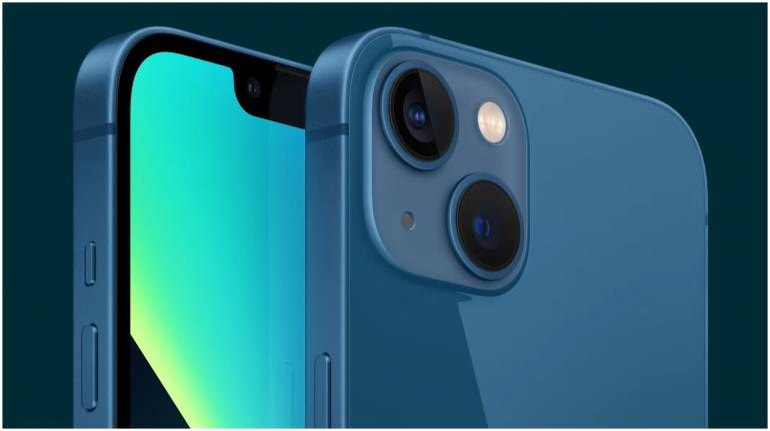
The wait is over.
On September 7, Apple announced the launch of iPhone 14. For the Apple aficionados, it is that time of the year when they are more cheerful than usual.
The high cost of iPhones deters most potential buyers. And compared to other phones with similar specifications, Apple devices are exorbitantly priced. The iPhone 14 price in India is set at Rs 79,900 for the base 128GB variant. Additionally, the iPhone 14 comes in 256GB and 512GB models that will set you back Rs 89,900 and Rs 1,09,900, respectively, in India. The iPhone 14 Plus price in India is set at Rs 89,900.
That's not all. Apple also launched the high-end iPhone 14 Pro models. These start from Rs 1,29,900 and go all the way to Rs 1,79,900.
From a pricing perspective, Apple has given iPhones a sort of aspirational status. According to many, it’s a sort of symbol that ‘you are someone’ or ‘you have arrived’.
But should you buy it even if you can’t afford it?
Expensive buy
It is debatable. But generally speaking, the answer is no. And that’s because it’s not something critical or important. You can get the job done with cheaper devices as well. It is not something that you cannot live without (sorry Apple fans!)
I don’t want to take the moral high ground and say that you shouldn’t buy these exorbitantly priced devices. If you have the money and can afford it, then why not? Go ahead and buy it. Your money. Your life. Your decisions.
But if you are clearly unable to afford it, and you need to borrow to buy it, then it doesn’t make sense to buy it. Even if it seems convenient to do so via the EMI route.
These days, the BNPL (Buy-Now-Pay-Later) is all rage. And these Easy-to-get EMI options might lure you into thinking that you really need an iPhone in life when the reality is something entirely different. The fact is that if you have survived till now without it, the chances are that your life is not dependent on it. Of course, you could have it. But it’s not a necessity.
Many youngsters love gadgets and want to stay up-to-date with the latest versions, even if it means going beyond their means to purchase the latest one.
A younger cousin of mine does this regularly. He just started working a couple of years back and earns about Rs 60,000 a month. But, he has already bought iPhones twice and is planning to upgrade to the newly launched iPhone 13 via the no-cost EMI route! I have tried to talk him out of the habit, but have failed miserably.
By the way, do not make the mistake of assuming that the ‘no-cost’ means interest-free.
Falling for no-cost EMIs
These no-cost-EMIs aren’t really what they seem. So, be careful when going for them.
But this is a growing trend. The easy availability of EMIs is fuelling the demand for unaffordable expenses. People are looking at EMIs as a way to upgrade their lives today itself. What they forget is that they comes at a cost. Not just the interest they pay, but also the wrong mind-set and potentially disastrous habit of getting into the Borrow-Repay-Repeat cycle.
So what to do if you cannot afford the new iPhone?
It’s very simple. Don’t purchase it. Not even using easily available no-cost EMIs. It’s not worth it.
In my view, taking loans for discretionary or lifestyle expenses isn’t right. I cannot stop you from doing so. But that is what I think.
And please don’t even think about buying it using your credit card and then not paying the full dues on time. Credit cards charge 30-40 percent a year in interest and more in form of late fees and penalties. Your iPhone will end up costing you a lot more than what its price tag tells you.
If you really have to purchase it, then wait for some time and save money for it. Instead of getting under a loan to buy iPhone13, save Rs 5,000-10,000 every month for a year, then proudly buy the next version, i.e. iPhone14 next year in 2022. And I am not just talking about buying phones here. This is for everything. Get into a habit of saving before spending.
For most, the iPhones are outrageously expensive. But easy options to convert your unaffordable purchases into EMI make it look otherwise. Try saying it aloud that something costs Rs 1 lakh versus saying that it costs Rs 5000 per month. Get it?
End note: Although I have taken the example of iPhone 14 here, the logic holds true for any luxury, high-end phone or item, whose purchase can either be postponed, avoided or where a cheaper alternative can work just as well. The logic here is that any aspirational item must be bought- and surely so- only when you can truly afford it (by paying it entirely in lumps, without taking a loan).
Discover the latest Business News, Sensex, and Nifty updates. Obtain Personal Finance insights, tax queries, and expert opinions on Moneycontrol or download the Moneycontrol App to stay updated!